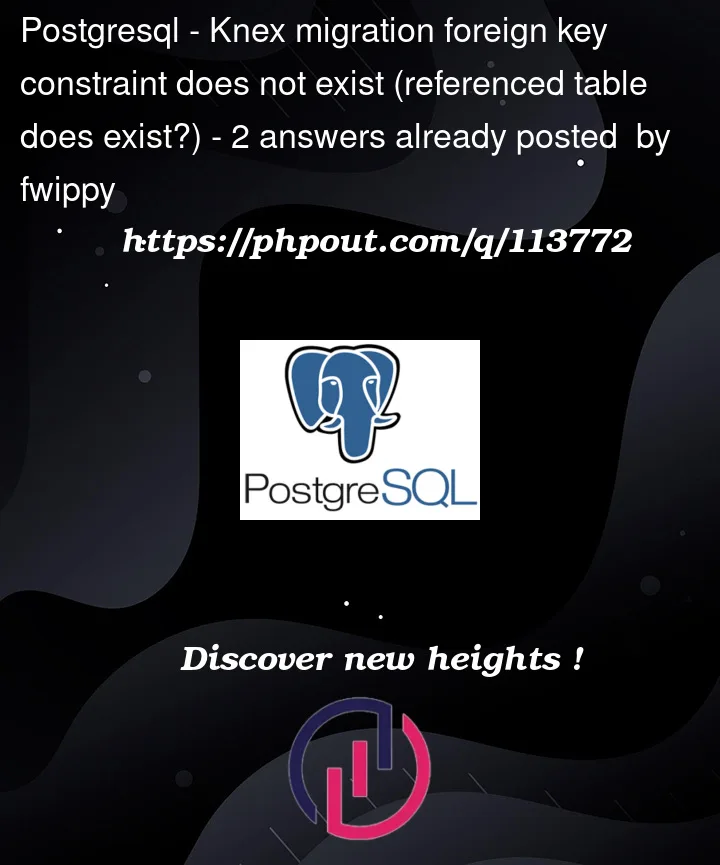Looked at some of the other posts asking about the error ‘column "column_name" referenced in foreign key constraint does not exist’ but none of the answers/situations seem to match exactly:
Currently have two migration files:
20210123122225_createReservationsTable.js
exports.up = function (knex) {
return knex.schema.createTable("reservations", (table) => {
table.increments("reservation_id").primary();
table.string("first_name").notNullable();
table.string("last_name").notNullable();
table.string("mobile_number").notNullable();
table.date("reservation_date").notNullable();
table.time("reservation_time").notNullable();
table.integer("people");
table.timestamps(true, true);
});
};
exports.down = function (knex) {
return knex.schema.dropTable("reservations");
};
20221112222830_tables.js
exports.up = function(knex) {
return knex.schema.createTable("tables", (table) => {
table.increments("table_id").primary();
table.string("table_name").notNullable();
table.integer("capacity").unsigned().notNullable();
table
.foreign("reservation_id")
.references("reservation_id")
.inTable("reservations")
.onDelete("cascade");
table.timestamps(true, true);
})
};
exports.down = function(knex) {
return knex.schema.dropTable("tables");
};
Running the migration results in:
migration file "20210123122225_createReservationsTable.js" failed
migration failed with error: alter table "tables" add constraint "tables_reservation_id_foreign" foreign key ("reservation_id") references "reservations" ("reservation_id") on delete cascade – column "reservation_id" referenced in foreign key constraint does not exist
I figured maybe the "reservations" table was being made after the "tables" table. But from what I understand, the migrations are run in order of the file names. Given that the "reservations" table’s migration file is dated earlier, it should be running first. I’ve also done this exact same method of migrations before and didn’t have an issue.
Either way, I tried running the migration for the "reservations" table first, and then the "tables" table migration separately. Same issue.
I tried other suggestions in previously asked questions here, like placing both table creations in the same file, using async tags to avoid race conditions, and still the same error.
Starting to feel like I’m missing something really obvious.




2
Answers
Of course I figure it out five minutes after I post the question, after an hour of going in circles.
I simply forgot to declare the actual column for the foreign key!
The
.downaction should mention "cascade" in the drop.Dropping
reservationsneeds to droptables,or at a minimum drop its FK dependency.
You have a …25…reservations file, and a …30.tables file.
I’m unclear on what the state of your database is when
the …25…reservations
.upaction throws a FK error.Both of us would expect it to
(A.) not care about
tables, and(B.) run fine, independent of whether
tablesexists.Maybe there’s a BEGIN … COMMIT transaction surrounding some of
the ALTER statements?
To debug this,
psql>prompt.